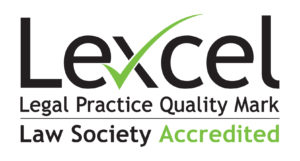Two taxi drivers are currently in the process of taking the Taxi App, Uber to the London Employment Tribunal. They are claiming that Uber has been acting unlawfully by not offering holiday, not paying National Living Wage or sick pay. It is also being argued that there are serious health and safety issues and Uber does not ensure its drivers take rest breaks or work a maximum number of hours per week.
Uber drivers are currently engaged on a self-employed basis and therefore are not entitled to workplace rights such as holiday pay, sick pay, National Living Wage or pension contributions. However the drivers are claiming they are not self-employed and therefore should benefit from the wide-ranging protection of an employee or worker.
The decision of whether the drivers are workers or self-employed will depend on the degree of control that Uber exercises over their drivers. In establishing employment or worker status, the Employment Tribunal will look at the substance of the relationship, rather than the legal form or any labels that the parties have given to the relationship. Where an individual is, on balance, a self-employed individual but there are some factors which point towards employment, it may be possible for them to reach the “pass mark” to qualify as a worker, even though they do not reach the higher pass mark to qualify as an employee.
It is claimed that Uber controls how much passengers are changed, requires drivers to follow particular route, pays the driver and uses a rating system to assess drivers’ performance and therefore Uber has a high degree of control over its drivers.
A successful action against Uber could see substantial pay outs for drivers and open the floodgates to an many individuals claiming they have been wrongly labelled as self-employed such as Hygienists, Therapists and Associates and hence posing a real risk for practice owners.
This case highlights again why it is important to ensure that any self-employed arrangement is operated properly and genuinely. The main issue is control – the more control a practice owner has over an Associate the more likely to be the case that they are found to be an employee. It is also important to highlight here that the Associate Agreement must reflect the actual working practices to ensure that not only the written agreement but also the practicing arrangement have as many self-employed indicators as possible such as the right locum/substitute, the right to choose and take as many holidays as they see fit, the right to work elsewhere, freedom to choose suppliers and laboratories.
If you’re concerned about your working arrangements, please do not hesitate to contact us.
The team at FTA Law provides advice to clients across the commercial and healthcare sectors with many of our instructions coming from referrals from long standing clients and industry contacts.
Contact usWe understand that price is a big concern for our clients and we always aim to offer a fixed fee for our services.














